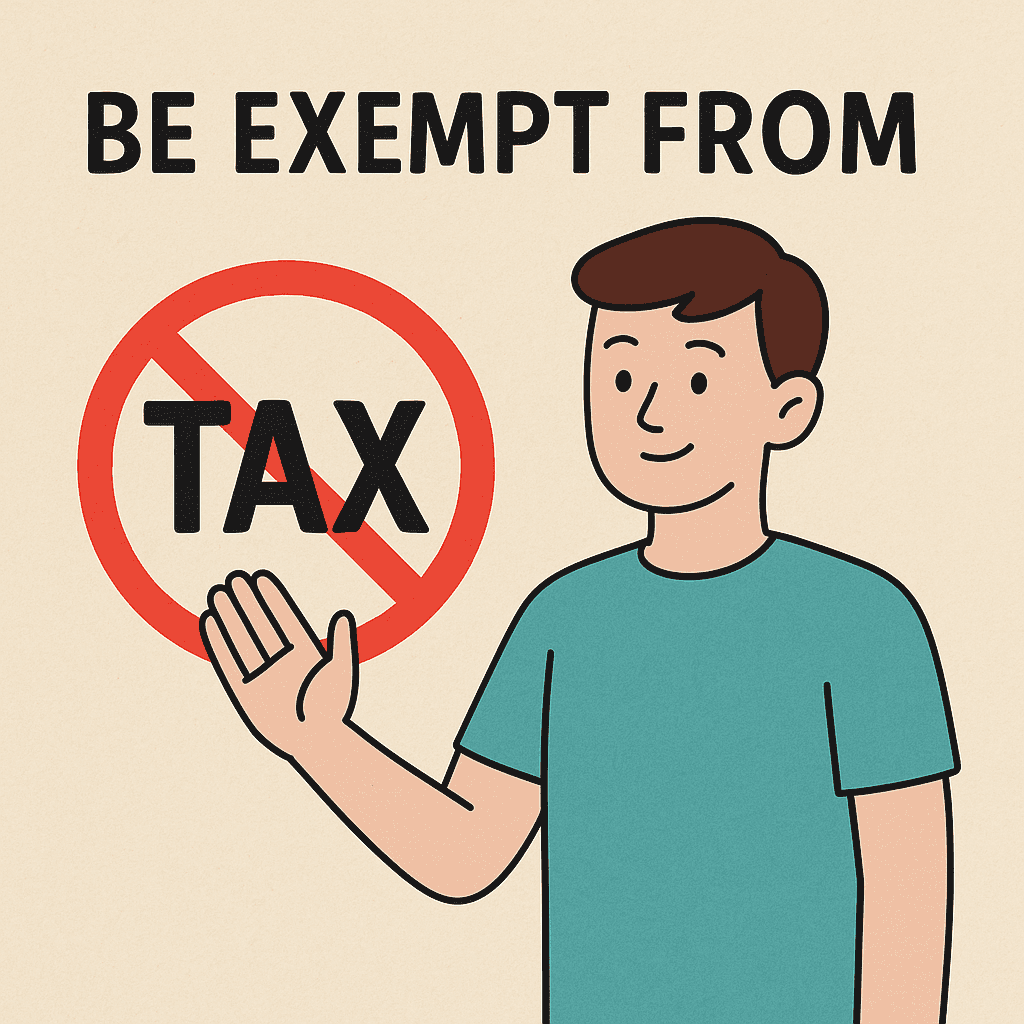Meaning
- Be exempt from means to be officially free from an obligation, duty, or rule that normally applies to others.
- It indicates that a person, group, or thing does not have to do or follow something.
Grammar and Usage
- Structure: be exempt from + noun/gerund
- Part of speech: passive construction using the adjective exempt.
- Usage: usually followed by from to show what the person or thing is excused from.
Examples of sentence patterns:
- be exempt from tax
- be exempt from paying fees
- be exempt from attending classes
Common Phrases
- Be exempt from tax
- Be exempt from duty
- Be exempt from responsibility
- Be exempt from military service
- Be exempt from exam/assignment
Collocations
- verb + exempt: declare exempt, consider exempt, make exempt
- noun + exempt: tax-exempt status, duty-exempt goods
- exempt + noun: exempt category, exempt item
Examples
- Students with excellent attendance are exempt from the final exam.
- Charitable organizations are often exempt from paying certain taxes.
- Children under five are exempt from the entrance fee.
- People with medical conditions may be exempt from wearing a uniform.
- Foreign diplomats are exempt from local laws in some cases.
- Retired employees are exempt from mandatory training sessions.
- Imported books may be exempt from customs duties.
- He was exempt from military service due to his health condition.
Synonyms or Related
- excused from
- free from
- not subject to
- released from
Antonym
- subject to
- obliged to
- required to
- bound by
